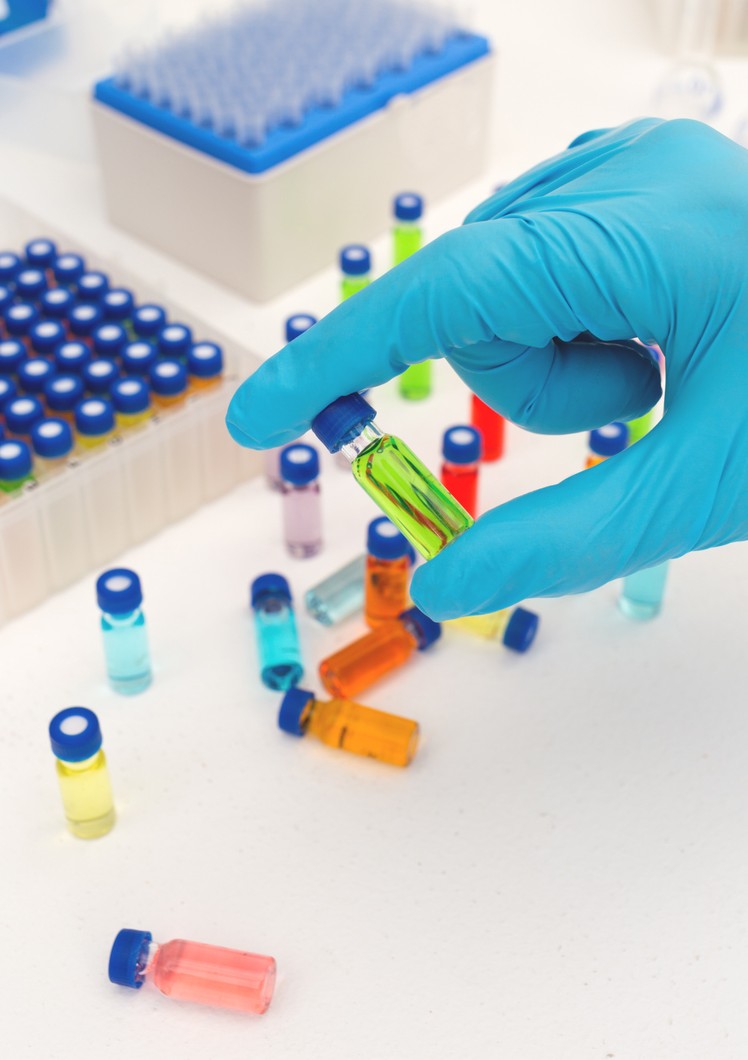Septa material should be determined by a number of factors. See our full reference guide here for helpful guidance.
Frequently Asked Questions
Screw caps may not fit properly if the cap size and thread type do not match the container’s finish. Containers have standardized finishes designated by the Glass Packaging Institute (GPI), which uses a numerical system to describe the cap size in millimeters and the thread style. For example, sizes like 8-425, 13-425, or 24-414 indicate the cap’s diameter (in millimeters) followed by the thread finish code. To achieve a proper fit, always use caps that correspond to the container’s specific GPI designation. See ILT’s Torque and Finish guide here.
The type of glass used in chromatography vials can significantly impact your analysis due to differences in chemical resistance, thermal properties, and compatibility with light-sensitive samples. Glass commonly used in chromatography is either Type 33 or Type 51, both of which are borosilicate glasses. Here’s how these two types differ:
Type 33 (Type 1, Class A – 33 Expansion Glass):
- This is a high-grade borosilicate glass with the lowest coefficient of expansion, making it highly resistant to thermal shock.
- It offers exceptional chemical resistance, reducing the risk of leaching or reactions between the sample and the container.
- Contains minimal trace elements, with total arsenic and antimony oxides less than 0.05%.
- Free of calcium, magnesium, and zinc group heavy metals, making it ideal for sensitive analyses.
- Type 33 glass is only available in clear form, as it cannot be manufactured in amber.
Type 51 (Type 1, Class B – 51 Expansion Glass):
- This borosilicate glass has a comparatively low coefficient of expansion, offering good resistance to heat shock and making it suitable for a wide range of applications.
- It provides reliable chemical compatibility for most analyses, though its metal content is higher than Type 33.
- All amber glass vials are made from Type 51 glass, making it essential for light-sensitive samples. However, prolonged exposure to daylight can cause the amber color to fade, reducing its effectiveness over time.
Yes. ILT offers four levels of analytical cleanliness to meet varying detection requirements. You can learn more in our Guide to Production Testing Levels.
ILT products do not have a specified shelf life, but we would expect use within 12 months of purchase due to the nature of the materials.
All ILT products are manufactured in the United States.
ILT tailors products to meet customer requirements and can offer materials that comply with common regulations, such as REACH, RoHS, Conflict Minerals Reporting, and other applicable regulations.
Yes. ILT maintains lot traceability for all products and is ISO 15378 Certified, ensuring full documentation and quality control.
ILT is committed to sustainable manufacturing through solar energy, recycling, waste reduction, and other eco-friendly practices. For more details, please contact your sales representative.
Yes. ILT offers custom caps and liners in a variety of materials, thicknesses, durometers, and colors. Options range from bonded to assembled caps — as well as a selection of slit types, from single slit to starburst slit. Learn more about ILT manufacturing here.
Yes, ILT provides custom packaging and kitting solutions tailored to your specific needs.
Yes, ILT can offer custom branding, including specific product colors, special labeling requirements, and logo placement and usage for the product.
To request a sample or quote, reach out to our sales team at sales@iltusa.com. Provide details about your specific requirements, including the type of product, quantity, and any additional specifications, to help us better understand your needs and deliver an accurate response.
Yes, ILT ships worldwide.

